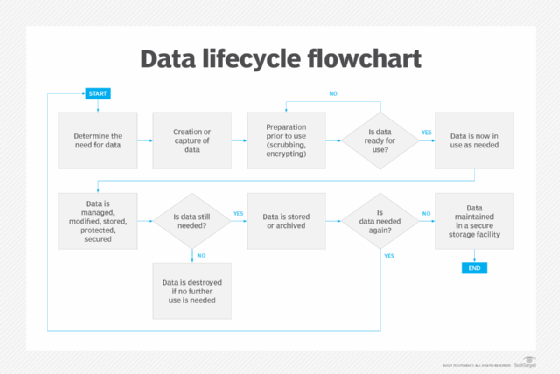Why Data Destruction is an Essential Part of Comprehensive Cyber Security
Why Data Destruction is an Essential Part of Comprehensive Cyber Security
Blog Article
The Crucial Nature of Information Devastation in Upholding Computer Protection Services and Protecting Versus Unauthorized Gain Access To
In an age where information breaches and identity burglary are progressively common, the significance of reliable information destruction can not be overstated. Organizations has to identify that the failure to effectively deal with delicate information postures not only legal and monetary risks yet likewise a prospective disintegration of client depend on. Various methods, from information cleaning to physical destruction, function as vital safeguards against unapproved access. However, comprehending the implications of information damage techniques and conformity with laws increases crucial questions regarding the competence of present techniques and their long-lasting practicality in the face of advancing dangers.
Importance of Information Destruction
In an increasingly digital world, the importance of information destruction can not be overstated. As organizations accumulate large quantities of delicate details, the prospective repercussions of falling short to properly handle and dispose of that information come to be increasingly serious. Information violations, identity theft, and business reconnaissance position significant hazards, underscoring the requirement of reliable data damage techniques.

Additionally, as modern technology evolves, so as well do the techniques whereby malicious actors look for to make use of sensitive details. Organizations should continue to be cautious and aggressive in their information devastation methods to secure against these evolving dangers. By focusing on data devastation, business not just shield their possessions however additionally foster trust among customers and stakeholders, showing a dedication to accountable data administration and safety techniques.
Methods of Effective Data Devastation
To make sure the full and permanent destruction of delicate data, companies can employ a selection of efficient approaches customized to their particular needs. Among one of the most usual approaches is information cleaning, which includes making use of specialized software application to overwrite existing information numerous times, making recovery virtually impossible. This is particularly helpful for hard disk drives and solid-state drives, where typical deletion techniques are insufficient.
One more effective method is degaussing, which utilizes strong magnetic fields to interrupt the magnetic domain names on storage space media, providing the information irretrievable. This approach is especially suited for magnetic storage tools, such as disk drive and difficult disks.
Physical devastation is additionally a feasible choice, entailing the shredding, crushing, or incineration of storage space tools. This method warranties that data can not be recouped, making it ideal for companies dealing with very delicate information.

Conformity With Data Defense Laws
Organizations need to not just concentrate on efficient data damage techniques but also ensure conformity with data defense guidelines that regulate exactly how delicate info is taken care of and dealt with. Abiding by these laws is necessary for safeguarding personal information and preserving customer trust. Regulations such as the General Information Defense Regulation (GDPR) in the European Union and the Medical Insurance Mobility and Responsibility Act (HIPAA) in the USA impose rigorous guidelines on information administration, that include requirements for the secure disposal of sensitive info.
To attain compliance, organizations have to apply detailed information damage plans that align with these lawful structures. This consists of determining data that needs damage, developing protocols for secure methodsâEUR" such as shredding physical media or making use of software that fulfills market standards for data wipingâEUR" and preserving thorough records of damage tasks. Regular audits needs to be carried out to click now make certain adherence to these plans and to determine any kind of potential areas for enhancement.
Failure to follow data security policies can bring about substantial legal ramifications, including hefty penalties and damages to an organization's reputation. For that reason, incorporating conformity right into data damage methods is not just a legal commitment but also a crucial component of a durable details security strategy.
Repercussions of Poor Data Handling
Poor data handling can bring about severe repercussions that expand beyond instant functional obstacles. Organizations may encounter significant economic losses due to data breaches, which typically result in pricey removal initiatives, legal charges, and governing fines. These economic ramifications can stress sources and impede development, eventually influencing a company's profits.
Moreover, bad data handling can drastically harm a company's reputation. Stakeholders, clients, and companions might lose depend on in an entity that stops working to safeguard delicate info, leading to reduced customer commitment and potential loss of service chances. This disintegration of depend on can take years to reconstruct, if it can be brought back in all.
In addition, organizations can deal with lawful ramifications emerging from non-compliance with information security regulations. Such offenses may cause fines and investigations, compounding the monetary concern and more tarnishing the company's image.
In the realm of cybersecurity, poor data monitoring techniques can develop vulnerabilities that make systems much more susceptible to unauthorized gain access to and cyberattacks. Eventually, these consequences underscore the crucial value of implementing durable data taking care of procedures to guard sensitive details and maintain business honesty.
Finest Practices for Secure Information Disposal


First of all, information must be classified according to its sensitivity. Delicate info needs a lot more strenuous disposal methods, such as shredding physical records and using advanced software application for digital data wiping. Utilizing qualified data devastation that site services guarantees conformity with market guidelines and standards.
Secondly, companies ought to implement an information disposal policy that mandates routine audits. This policy should detail the procedures for information retention and damage, guaranteeing that out-of-date data is dealt with promptly and firmly. Training staff members on these methods is important to promoting a culture of security awareness.
Finally, maintaining in-depth records of disposed data boosts liability and provides a clear audit path. This documentation should see it here include the type of data destroyed, the technique utilized, and the day of disposal.
Conclusion
To conclude, the critical of reliable data damage appears in its duty in enhancing computer security solutions and alleviating unauthorized accessibility threats. Embracing robust methods such as information cleaning, degaussing, and physical damage, alongside conformity with regulations like GDPR and HIPAA, is important for securing delicate info. Overlooking proper data disposal methods can lead to serious consequences, including data violations and lawful consequences. Executing ideal techniques in safe and secure data disposal ultimately fortifies business stability and client trust.
In an age where information breaches and identity burglary are progressively prevalent, the importance of effective information damage can not be overemphasized. data destruction. Data violations, identity theft, and company reconnaissance position significant dangers, underscoring the need of efficient information devastation methods
Compliance with regulations such as GDPR and HIPAA requireds that companies carry out stringent information security measures, including the secure destruction of information at the end of its lifecycle.
By focusing on data damage, companies not just shield their properties but likewise foster trust amongst clients and stakeholders, demonstrating a dedication to liable data management and security techniques.
Organizations have to not just concentrate on efficient data damage approaches yet additionally guarantee conformity with information security policies that control exactly how sensitive information is taken care of and disposed of.
Report this page